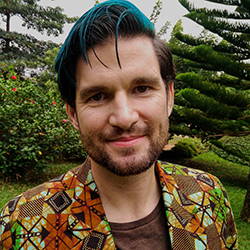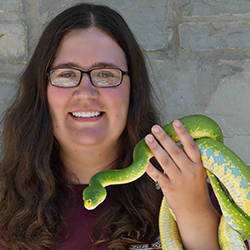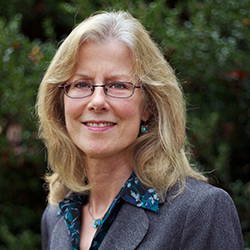Nelson Institute Announces the Winners of the Rising Star and Distinguished Alumni Awards
August 14, 2018
Whether it is providing life-saving care to the residents of Uganda, developing a resolution for transboundary water conflicts, providing conservation education or championing river preservation, Nelson Institute alumni are at the forefront of important efforts around the world. Such impactful work is deserving of recognition, which is why the Nelson Institute is proud to honor outstanding alumni through the annual Rising Star and Distinguished Alumni Awards.
Recognizing alumni whose work truly embodies the community-based philosophy that is cultivated within the Nelson Institute, the 2018 Rising Star Alumni Award will be presented to two individuals who have who are making a significant difference in the world soon after graduation, while the Distinguished Alumni Award will be presented to two individuals who have demonstrated considerable professional achievement and/or community service in the decades following their time as a student at Nelson Institute. Recipients will be honored at the Rendezvous on the Terrace on September 7, 2018. The award ceremony is open to all alumni and friends of the Institute. For more information and to RSVP, visit https://nelson.wisc.edu/alumni/alumni-gatherings.php.
Rising Star Alumni Award Recipients:

Kevin Gibbons
Kevin Gibbons, M.S. Conservation Biology & Sustainable Development (2010), Nelson Institute for Environment Studies, University of Wisconsin-Madison
As the co-founder and Executive Director of Health Access Connect in Kampala, Uganda, Kevin Gibbons works to provide residents of remote villages with access to health services, such as anti-retroviral treatment, perinatal services, malaria treatment, child checkups and more. Launched in 2014, Health Access Connect is the culmination of Gibbons’ education and determination. A member of the Peace Corps, Philippines for three years and a dedicated student at the Nelson Institute, Gibbons has spent much of his life seeking out ways to solve challenges through service, innovation and collaboration. In fact, while working on his master’s degree, Gibbons traveled to rural fishing villages on Lake Victoria in Uganda to learn more about how food insecurity and livelihoods were impacted by fisheries governance. While there, he listened to people in remote areas describe the challenges they faced in terms of health and environment. There were free life-saving health services available at the health facilities, but people could not reach them. Determined to create a solution, Gibbons started Health Access Connect, which helps Ugandan health workers to serve over 13,000 patients per year. Of his work, Gibbons says, “I see my life as one of service to find long-term solutions to connect people with resources. The world is rich, and service helps distribute that wealth.” You can find out more about Health Access Connect at https://healthaccessconnect.org

Aszya Summers
Aszya Summers, BS. Zoology, B.S. Environmental Studies (2014), Nelson Institute for Environment Studies, University of Wisconsin-Madison
Working as the Conservation Education Manager at the Racine Zoo in Racine, Wisconsin, Aszya Summers has exemplified the community-based philosophy that is cultivated within the Nelson Institute by bringing conservation-based outreach to her local community. Determined to make conservation education accessible, Summers created multiple education programs for the zoo including, Wildlife Explorers, a free, grant-funded program that provides every third grader in the high-poverty Racine Unified School District with the opportunity to visit the zoo for hands-on conservation education. The success of this program led to the launch of the Li’l Explorers preschool program and an eight-week high school internship program that prepares future generations to take the reins of conservation. Summers also works with a number of outside organizations to expand conservation education. With assistance from the Disney Conservation Fund and six environmental non-profits, Summers launched the Racine Nature Club, which hosts twelve free nature-related events throughout the year for families in the Racine area. Summers also serves as the chapter coordinator for the Environmental Education Network, which works with local teachers to provide low cost professional development in environmental education. Of her efforts Summers says, “I will never stop working to bring environmental education in Racine to the next level.”
Distinguished Alumni Award Recipients:

Rebecca Wodder
Rebecca Wodder, M.S. Water Resources Management and Landscape Architecture (1978), Nelson Institute for Environment Studies, University of Wisconsin-Madison
A leader in the national environmental and conservation community, Rebecca Wodder began her career working as a legislative staffer for former Senator and Nelson Institute namesake, Gaylord Nelson. She joined The Wilderness Society as Alaska Lands Program Director and later served as the Vice President of Membership, Marketing and Development, where she worked to increase awareness and protection of public lands. From there she spent 17 years as the President and CEO of American Rivers, followed by two years as a senior advisor to the Secretary of the U.S. Department of the Interior where she developed and led a major watershed conservation initiative. Of her work, the award nominator said, “Rebecca has blazed a trail of principled, thoughtful leadership… as one of Nelson Institute’s early graduates, it is fitting to recognize her lifetime of achievement and her continued contributions to water resources and conservation goals for the nation.”

Aaron Wolf
Aaron Wolf, M.S. Water Resources Management (1990), Ph.D. Land Resources, Environmental Policy (1992), Nelson Institute for Environment Studies, University of Wisconsin-Madison
A trained mediator and facilitator, Aaron Wolf has become a well-recognized leader in addressing transboundary water conflicts. Having worked as a consultant to the U.S. and other governments, World Bank and a number of other organizations, Wolf has been deeply involved in the international effort to safeguard the environment and raise awareness of ecological issues. Currently a Professor of Geography at Oregon State University, Wolf leads the Program in Water Conflict Management and Transformation and has developed a widely used Transboundary Freshwater Dispute Database as a part of that work. Wolf has received a number of awards and honors for his work including the 2016 American Association of Geographers Gilbert R. White Distinguished Public Service Honor “in recognition of his work on seeking peaceful approaches to international competition over water resources.” He was also awarded, by the Heinz Family Foundation, the 2015 Heinz Award for Public Policy for “applying 21st century insights and ingenuity, as well as ancient wisdoms, to complex problems for the security of the planet.”